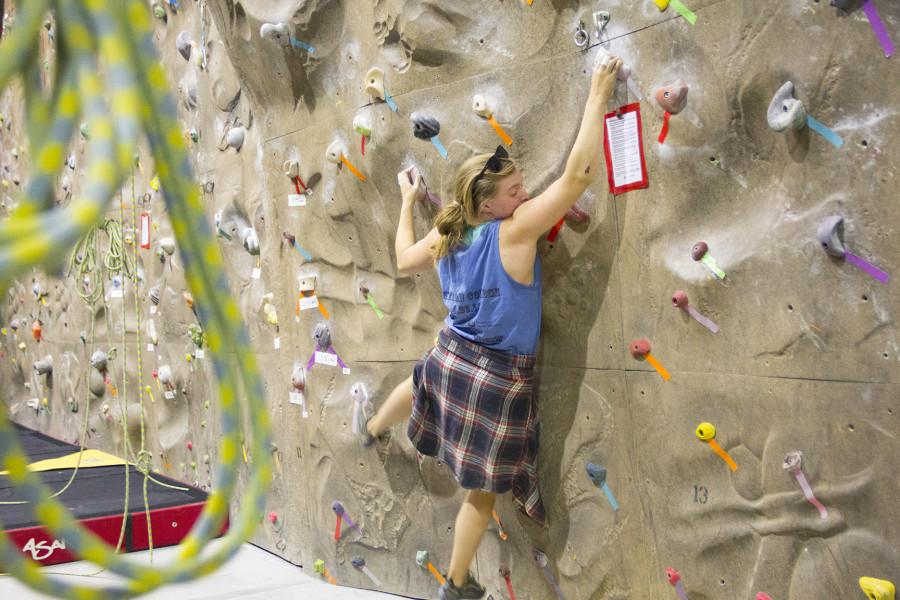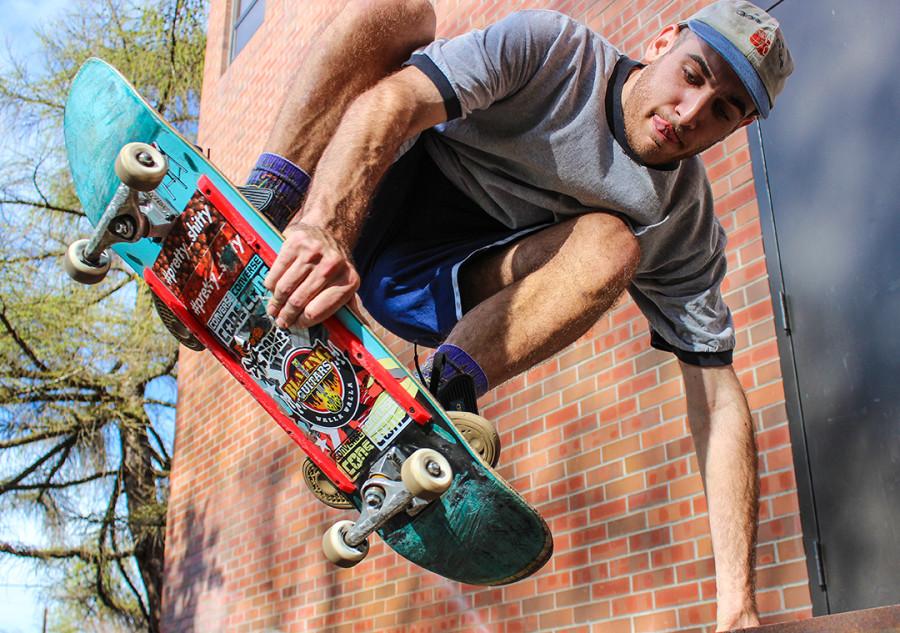As soon as he graduated high school in Portland, Silas Morgan began backpacking almost every trail in the Columbia River Gorge with a friend for three months. That was only the beginning of a year packed with wine, backpacking and traveling before starting at Whitman this year.

Morgan knew he wanted to take a gap year before college. To pursue his interest in producing alcohol, he planned on a year of winemaking.
“I was originally infatuated with the romantic idea of a winery, and my plan was to work at this magical winery and drink wine all day and crush grapes with my feet,” said Morgan.
His plan was to work harvest at a Pinot Noir winery in Newberg, Ore. and then move on to New Zealand or South America and work harvest there, which would begin after harvest ended in Oregon.
“I could work pretty much continuous harvests, which, if you’ve ever experienced a harvest, is a hellish idea,” he said.
Though he had a great experience in Newberg, it didn’t exactly match Morgan’s vision of winery work.
“It was amazing,” he said. “I learned a lot, but it was really challenging.”
Once he learned that working harvest meant three months of 16-hour days, he changed his plans and signed up for one of the most challenging courses NOLS, the National Outdoor Leadership School, had to offer.
Morgan soon flew down to Chile for a 30-day mountaineering course in Patagonia. Since the course was so demanding, he found himself with a lot of middle-aged lawyers and investment bankers on the second-largest mountain in Patagonia, which houses five peaks above 14,000 feet.

“That was really special,” said Morgan.
Morgan didn’t have any flights booked for his time after NOLS.
“I decided not to plan anything,” he said.
With a few people he had met on the course, he ended up backpacking through Chile and Argentina for another three months.
“We hitchhiked for months,” said Morgan. “You’re at the mercy of people’s generosity, which is a really beautiful thing.”
Morgan wasn’t the only soon-to-be Whitman student gallivanting through Patagonia. First-year Jacob Fritz from Bend, Ore. was in the middle of a 10-month backpacking excursion through South America, which included a three-month stint working through WWOOF, World Wide Opportunities on Organic Farms, in Badi Loche in Patagonia.
“It was mostly about self-reflection but a lot of it also had to do with taking some time off from school,” he said. “I was just burnt out from school after senior year and I just kind of needed a break.”

Fritz traveled from Uruguay, through Argentina, Chile, up the coast through Peru, Ecuador, Colombia and finally to Rio de Janeiro where he spent two weeks watching the World Cup.
Fritz saw Machu Picchu, camped on glacial lakes, went to a full moon party in the mountains and saw countless towns. Amidst traveling, his time spent working in Badi Loche allowed Fritz to settle down and take a break from constantly moving.
“Moving around a lot, you do get tired. You do get these urges to just stay somewhere. Even though it is fantastic and you know you’re going to run into these cool experiences and people and places, you also just want to make friends and get to know the place,” he said.
Morgan can also attest to the strain of traveling.
“It can be really lonely,” he said. “You meet a lot of people and I think you’re pushed beyond yourself a lot … But yeah, it’s pretty damn lonely.”

In North America, meanwhile, first-year Abigail Popenoe from Portland, Maine was hiking the Pacific Crest Trail with a friend from high school who also took a gap year. Though they crossed paths with a lot of different people, there were also on their own for a large part of their four-month trip.
“I liked the idea of how it was really independent and all on me,” said Popenoe. “It seemed like a good way to get outside and spend time in the wilderness without it being a really organized program.”
Though Popenoe and her friend were independent on their journey, they became a part of the trail culture on the PCT. Everyone went by nicknames, or “trail names”, and like Morgan, Popenoe and company relied on the generosity of people called trail angels who would let them stay, shower and eat at their homes.
“I think it definitely made me understand myself better and the sorts of people I like to spend my time with,” said Popenoe.
As the three of these gap-year students now settle into life at Whitman, they are all shaped by their experiences in the last 12 months.
“It’s pretty easy for me to settle in a new place,” said Popenoe. “I’m not really dealing with the homesickness part that a lot of people are.”
“This isn’t a huge transition to living by myself, which I think it is for a lot of college freshmen,” echoed Fritz. “I’m here because I want to keep learning … I’m coming in a lot more self-motivated.”

Morgan, who worked three jobs, climbed in Utah and backpacked in the North Cascades after finishing traveling and visiting his sister in South America, says he has a better appreciation for the opportunities he has at Whitman after his year off.
“I wasn’t at a level to appreciate it like I am now,” said Morgan. “Meeting so many people with second jobs in their 40s and still struggling to make ends meet made me really appreciate going to a fine institution that I know will give me a better chance to succeed.”
Like Popenoe, Morgan also has a better sense of how he wants to interact with people in his life.
“Life’s too short to spend time with people who don’t appreciate you for who you are, and you don’t appreciate them,” he said.
















